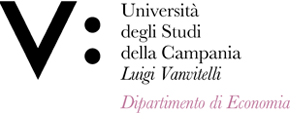Alessia MIGNOZZI
Insegnamento di DIRITTO PRIVATO DEL TERZO SETTORE E IMPRENDITORIALITA' SOCIALE
Corso di laurea magistrale in ECONOMIA E MANAGEMENT
SSD: IUS/01
CFU: 8,00
ORE PER UNITÀ DIDATTICA: 56,00
Periodo di Erogazione: Primo Semestre
Italiano
| Lingua di insegnamento | ITALIANO |
| Contenuti | Il corso di Diritto privato degli enti del Terzo settore e imprenditorialità sociale ha ad oggetto l'apprendimento dei profili giuridici del Terzo settore alla luce della riforma in corso (realizzata dalla legge-delega n. 106 del 2016 ed attuata dai decreti legislativi n. 117 del 2017 (Codice del Terzo settore), n. 112 del 2017 (impresa sociale), compresa la revisione della disciplina contenuta nel titolo II del libro I del cod. civ. Esso si propone di offrire un’approfondita ricostruzione delle nozioni in tema di formazioni sociali, libertà di associazione, libertà di impresa e sussidiarietà orizzontale, nonché della disciplina civilistica degli enti senza fine di lucro (Libro I del Codice civile) alla luce delle riforme attuali ed in fieri del Terzo settore. |
| Testi di riferimento | Durante il corso, in virtù della continua evoluzione della materia, sarà distribuito il materiale didattico necessario, di aggiornamento, di approfondimento e case study. Gli studenti si dedicheranno unicamente alle parti del programma indicate dal docente all’inizio del corso d’insegnamento. |
| Obiettivi formativi | Conoscenza e comprensione del lessico giuridico specialistico e degli elementi caratterizzanti i principali istituti giuridici del Diritto privato degli enti del Terzo settore ed imprenditorialità sociale. |
| Prerequisiti | Non sono previste propedeuticità, né particolari prerequisiti. |
| Metodologie didattiche | La didattica si basa sulla seguente articolazione: |
| Metodi di valutazione | La prova di esame per gli studenti consiste in una prova orale da cui sia possibile per il docente valutare il grado di comprensione, assimilazione e applicazione degli istituti giuridici approfonditi, sempre in ottica critica, nonchè di analisi di un caso giurisprudenziale individuato dal docente in sede di esame e nel rispondere sia a domande ad esso relative (domande soglia - minimo ineludibile) sia ad altri quesiti relativi al programma. L’esame può essere superato solo nel caso in cui lo studente risponda in maniera sufficiente alle domande soglia con il voto minimo di 18 e il voto massimo di 30 e lode. |
| Altre informazioni | Gli studenti sono seguiti individualmente nella preparazione dell’esame mediante l’attività di tutoraggio che si svolge durante l’intero anno accademico. |
| Programma del corso | Il corso è così articolato: |
English
| Teaching language | Italian |
| Contents | The course in Private Law of Third Sector entities and social entrepreneurship is aimed at learning about the legal profiles of the Third Sector in the light of the ongoing reform (carried out by delegated law no. 106 of 2016 and implemented by legislative decrees no. 117 of 2017 (Code of the Third Sector), no. 112 of 2017 (social enterprise), including the revision of the regulations contained in Title II of Book I of the Civil Code. It aims to offer an in-depth reconstruction of the notions of social groups, freedom of association, freedom of enterprise and horizontal subsidiarity, as well as of the civil law regulation of non-profit organisations (Book I of the Civil Code) in the light of the current and ongoing reforms of the Third Sector. |
| Textbook and course materials | During the course, due to the continuous evolution of the subject, the necessary didactic material, updates, in-depth studies and case studies will be distributed. Students will only devote themselves to the parts of the programme indicated by the lecturer at the beginning of the course. |
| Course objectives | Knowledge and understanding of the specialised legal vocabulary and of the elements characterising the main legal institutions of the private law of Third Sector organisations and social entrepreneurship. |
| Prerequisites | There are no prerequisites, nor any particular prerequisites. |
| Teaching methods | Teaching is based on the following structure: |
| Evaluation methods | The examination for students consists of an oral test from which the teacher can assess the degree of understanding, assimilation and application of the legal institutions studied, always from a critical point of view, as well as the analysis of a case law case identified by the teacher during the examination and in answering both questions related to it (threshold questions - minimum) and other questions related to the programme. The examination can only be passed if the student answers the threshold questions sufficiently, with a minimum mark of 18 and a maximum mark of 30 cum laude. |
| Other information | Students are supported individually in their exam preparation through tutoring activities that take place throughout the academic year. |
| Course Syllabus | The course is structured as follows: |








